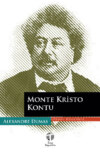Kitabı oku: «The Last Vendée», sayfa 50
"Whom do you mean, poor child?"
Mary raised her hand to heaven.
"God!" she said.
Bertha did not answer; grief was choking her; but she held Mary tightly clasped against her breast, while Michel, utterly overcome, fell on a bench in a corner of the room.
"Forgive us!" murmured Mary, in her sister's ear. "Do not crush him! Is it his fault if a mistaken education has made him so irresolute and timid that he had no courage to speak when it was his duty to do so? He has long wished to tell you the truth, but I have withheld him. I alone am to blame, I hoped we should forget each other. Alas, alas! God has made us very feeble against our own hearts! But now, we will never leave each other, you and I, dear sister. Look at me! let me kiss your eyes! No one shall ever come between us! no man shall bring trouble and discord between two sisters. No, no! we will live alone together, loving each other, – alone with ourselves and God, to whom we will consecrate our lives; and there will still be happiness, my Bertha, happiness in our solitude, for we can pray for him, we can pray for him!"
Mary uttered the last words in a heart-rending tone. Michel, convulsed with anguish, came and knelt beside her before Bertha, who, with her mind bent on her sister, did not notice him.
At this moment the soldiers appeared at the door which Bertha had left open, and the officer we have seen at the inn of Saint-Philbert advanced into the middle of the room and laid his hand on Michel's shoulder.
"You are Monsieur Michel de la Logerie?" he said.
"Yes, monsieur."
"Then I arrest you, in the name of the law."
"Great God!" cried Bertha, recovering her senses. "I had forgotten it! Ah, it is I who have killed him! And the other! down there! down there! Oh, what is happening there?"
"Michel, Michel!" said Mary, forgetting what she had just said to her sister. "Michel, if you die, I will die with you."
"No, no," cried Bertha, "he shall not die; I swear to you, sister, you shall still be happy! Make way, monsieur, make way!" she said to the officer.
"Mademoiselle," replied the latter, with painful politeness, "like you I cannot trifle with my duty. At Saint-Philbert you were only, to me, a suspicious person. I am not a commissary of police, and I was not called upon to interfere with you. Here I find you in flagrant rebellion against the laws, and I arrest you."
"Arrest me! arrest me at this moment! You may kill me, monsieur, but you shall not have, me living!"
And before the officer could recover from his surprise, Bertha climbed the window, sprang into the courtyard, and reached the gate. It was guarded by soldiers. Looking about her the girl saw Michel's horse, which, frightened by the noise and the apparition of the soldiers, had broken loose and was running hither and thither about the yard.
Profiting by the confidence that the officer felt in the precaution taken of surrounding the house, a security which prevented him from ordering violence against a woman, she went straight to the animal and sprang into the saddle with a bound, then passing like a thunderbolt before the eyes of the amazed officer, she reached a place in the wall which was slightly broken down; there with heel and bridle she urged on the horse, which was an excellent English hunter, made it jump the barrier which was still nearly five feet high, and darted away across the plain.
"Don't fire! don't fire upon that woman!" cried the officer, who did not think the prize worth taking dead if he could not get her living.
But the soldiers who formed the cordon outside the courtyard did not understand the order, and a rain of balls hissed around Bertha as the vigorous stride of her good English beast carried her toward Nantes.
XL.
THE CHIMNEY-BACK
Let us now see what was happening in Nantes during this night which began with the death of Joseph Picaut, followed by the arrest of Monsieur Michel de la Logerie.
Toward nine o'clock that evening a man with his clothes soaked in water and soiled with mud presented himself at the Prefecture, and on refusal of the usher in charge to take him to the prefect, he sent in to that official a card, bearing, as it appeared, some all-powerful name, for the prefect immediately left his employment to receive this man, who was no other than the one known to us as Monsieur Hyacinthe.
Ten minutes after their interview a strong force of gendarmes and police officers was on its way to the house occupied by Maître Pascal in the rue du Marché, and soon appeared before the door of the house which opened on the street.
No precaution was taken to dull the sound of the column's advance, or to mislead any one as to its intentions; so that Maître Pascal, on becoming aware of its advance, had plenty of time to notice that the door into the alley was not guarded, and to escape in that way before the emissaries of the law could burst in the door on the rue du Marché, which was not opened to them.
He made at once for the rue du Château and entered No. 3. Monsieur Hyacinthe, whom he had not perceived, hidden as he was behind a stone block near the entrance of the alley, followed him with all the practised skill of a hunter stalking the game he covets.
During this preliminary operation, for the success of which Monsieur Hyacinthe had probably vouched, the authorities had taken strong military measures; and no sooner had the Jew made his report of what he had seen to the prefect of the Loire than twelve hundred men advanced upon the house into which the spy had seen Maître Pascal disappear. These twelve hundred men were divided into three columns. The first went down the Cours, leaving sentinels stationed along the walls of the Archbishop's garden and the adjoining houses, skirted the castle moat and came in front of No. 3 rue du Château, where it deployed. The second, following the rue de l'Evêché, crossed the place Saint-Pierre, went down the main street, and joined the first column by the rue Basse-du-Château. The third united with the two others from the upper end of the rue du Château, leaving, like the others, a long line of sentries with fixed bayonets behind it.
The investment was complete; the whole nest of houses, in the midst of which was No. 3, was securely surrounded.
The troops entered the ground-floor, preceded by the commissaries of police, who marched before them, pistol in hand. The soldiers spread themselves through the house and guarded all the exits; their mission was then fulfilled. That of the police began.
Four ladies were, apparently, the only occupants of the house. These ladies, who belonged to the upper aristocracy of Nantes, and were respected, not only for their social position, but for their honorable characters, were arrested.
Outside the house a crowd gathered, and formed another cordon behind that of the soldiers. The whole town seemed to have turned into the streets; but no sign of royalist sympathy was shown. The crowd was grave and curious, that was all.
Investigations began inside the house; and their first result confirmed the authorities in the conviction that Madame la Duchesse de Berry occupied it. A letter addressed to her Royal Highness was lying open on a table. The disappearance of Maître Pascal, who was seen to enter the house and known not to have left it, proved the existence of some hiding-place within its walls. That hiding-place must be found.
All articles of furniture were opened if the keys were in them; broken open if they were not. The sappers and masons sounded the walls and floors with their hammers; builders, who were taken from room to room, declared it impossible, comparing the internal with the external construction, that any hiding-place was made in the walls. In several of the rooms, however, articles were found, such as printed papers, jewels, articles of silver, which might, to be sure, have belonged to the owners of the house, but, under the circumstances, seemed to point to the presence of the princess within the walls. When the garret was reached the builders declared that there, less than elsewhere, was it possible for a hiding-place to exist.
The police then searched the neighboring houses, sounding the walls with such violence that fragments of masonry were detached, and at one time it was thought that the walls themselves were coming down.
While these things were happening about them the ladies of the house, who were under arrest, showed the greatest coolness; though kept in sight by their guards, they calmly sat down to dinner. Two other women, – and history ought, ere this, to have searched out their names and preserved them for posterity, – two other women were the special objects of police investigation; these women, the servants of the household, named Charlotte Moreau and Marie Boissy, were taken to the castle, thence to the barracks of the gendarmerie, where, finding that they resisted all threats, an attempt was made to corrupt them. Large and still larger sums of money were offered to them, but they answered steadily that they knew nothing whatever of the Duchesse de Berry.
After these ineffectual efforts the search relaxed; the prefect was the first to retreat, leaving, by way of precaution, a sufficient number of men to guard each room in the house, while the commissaries of police took up their quarters on the ground-floor. The house was still surrounded and the National Guard sent a detachment to relieve the troops of the line, who took a rest.
In distributing sentries, two gendarmes were placed in two attic rooms, which had, of course, been carefully searched. The cold was so sharp that these men suffered from it. One of them went downstairs and returned with an armful of peat-fuel, and ten minutes later a fine fire was blazing in the chimney, the iron back of which was soon red-hot.
Almost at the same time, although it was scarcely daylight, the work of the masons began again; their crow-bars and mallets struck the walls of the attic rooms and made them tremble. In spite of this noisy racket, one of the gendarmes was fast asleep; his companion, now comfortably warm, had ceased to keep up the fire, and the masons, satisfied at last, gave up the search in this part of the house, which, with the instinct of their trade, they had carefully explored.
The gendarme who was awake, profiting by the silence that followed the diabolical uproar which had continued since early on the previous evening, went to sleep himself. His companion soon after waked up cold. His eyes were scarcely open before he thought of warming himself, and relighted the fire; but as the peat did not ignite very readily, he threw into the fireplace a number of copies of the "Quotidienne" which lay pell-mell upon the table. The flames from the newspapers produced a thicker smoke and greater heat than the peat had done at any time. The gendarme, feeling comfortable, was occupying his time by reading the "Quotidienne," when all of a sudden his pyrotechnic edifice came tumbling clown, and the peat squares which he had set against the chimney-back rolled into the room.
At the same instant he heard from behind that back a noise which gave him an odd idea; he fancied there were rats in the chimney, and that the heat of his fire had forced them to decamp. On this he woke up his comrade, and together they made ready to chase the rodents, sabre in hand.
While their attention was wholly fixed on this new species of game, one of them noticed a decided movement of the chimney-back, and he called out: -
"Who's there?"
A woman's voice replied: -
"We surrender, – we will open the door; put out your fire!"
The two gendarmes jumped to their fire and scattered it out with a few kicks. The chimney-back then slowly turned on a pivot and disclosed a hollow space, from which a woman, bareheaded, her face pale, her hair standing up from her forehead like that of a man, dressed in a simple Neapolitan gown of a brown color, scorched in many places, came forth, placing her feet and hands on the heated hearth.
This woman was Petit-Pierre, her Royal Highness Marie-Caroline, the Duchesse de Berry.
Her companions followed her. For sixteen hours they had been confined in that cramped place without food. The hole which was thus their asylum was made between the flue of the chimney and the wall of the adjoining house under the roof, the rafters of which served to conceal it.
At the moment when the troops surrounded the house her Royal Highness was listening to Maître Pascal, who gave her an amusing account of the scare which had led him to leave his house and come to hers. Through the windows of the room in which she sat the duchess could see the moon rising in the calm sky, and defining, like a brown silhouette, the massive towers, the silent, motionless towers of the old castle.
There are moments when nature seems so gentle, so friendly, that it is impossible to believe a danger lurks and threatens us from the midst of such perfect quietude.
Suddenly Maître Pascal, coming nearer to the window, saw the flash of bayonets. Instantly he threw himself back, exclaiming: -
"Escape! save yourself, Madame!"
The duchess at once rushed up the staircase, the others following her. Reaching the hiding-place, she turned and called to her companions. As they knew the place could only be entered on their hands and knees, the men went first; then, as the young lady who attended on her Royal Highness was unwilling to pass before her, the duchess said, laughing: -
"Go in, go in! Good strategy requires that when a retreat is made the commander should always be in the rear."
The soldiers entered the door of the house just as that of the hiding-place was closed on the princess and her friends.
We have seen with what minute care the search had been made. Every blow struck on the walls resounded in the refuge of the duchess; the plaster fell in showers, the bricks were loosened, and the prisoners came near being buried in the mass of rubbish shaken down by the jar of the hammers and the iron-bars and joists of the searchers. When the gendarmes built their fire the back of the chimney and the wall gave forth a heat which made the little chamber almost insupportable. After a while those who were imprisoned in it could scarcely breathe, and they would have perished asphyxiated if they had not succeeded in getting a few slates off the roof, which made an opening that let in air.
The duchess suffered the most; for, having entered last, she was nearest to the chimney-back. Each of her companions begged her to change places, but she would not consent to it. To the danger of being suffocated was now added that of being burned alive. The door of the hiding-place was red-hot, and threatened at every moment to set fire to the clothing of the women. In fact, Madame's gown had been twice on fire and she had put it out with her hands, which were badly burned; the scars remained visible for many months.
Every minute exhausted the interior air, and the external air admitted through the tiny holes did not suffice to renew it. The breathing of the prisoners became more and more difficult; another ten minutes in that furnace might sacrifice the future life of the duchess. Her companions implored her to surrender; but she would not. Her eyes filled with tears of anger, which the scorching air dried upon her cheeks. The fire had again caught her gown and again she had extinguished it; but in the movement she thus made she chanced to touch the spring of the chimney-back, which moved and attracted the attention of the gendarme.
Supposing that this accident had betrayed her retreat, and pitying the sufferings of her companions, Madame consented to surrender, leaving the chimney as we have related. Her first words were a request to see General Dermoncourt. One of the gendarmes went to find him on the ground-floor, which he had not chosen to leave throughout the search.
XLI.
THREE BROKEN HEARTS
As soon as the general's arrival was announced, Madame went hastily toward him.
"General," she said quickly, "I surrender to you; and I trust to your loyalty!"
"Madame," replied Dermoncourt, "your Royal Highness is under the safeguard of French honor!"
He led her to a chair, and as she seated herself she pressed his arm firmly and said: -
"General, I have nothing to reproach myself with. I have done my duty as a mother to recover my son's inheritance."
Her voice was clear and accentuated. Though pale, she was excited as if by fever. The general sent for a glass of water, in which she dipped her fingers; the refreshing coolness calmed her.
During this time the prefect and the commander of the National Guard were notified of what had happened. The prefect was the first to arrive. He entered the room in which Madame was sitting, with his hat on his head, ignoring that a woman was a prisoner there, – a woman whose rank and whose misfortunes deserved more respect than had ever been shown her.
He approached the duchess, looked at her, touched his hat cavalierly, and said: -
"Yes, that is really she."
Then he went out to give some orders.
"Who is that man?" asked the princess.
The question was a natural one, for the prefect had presented himself without any of the distinctive signs of his high administrative position.
"Madame can surely guess," said the general.
She looked at him with a slight laugh.
"I suppose it must be the prefect," she said.
"Madame could not have been more correct had she seen his license."
"Did that man serve under the Restoration?"
"No, Madame."
"I am glad for the Restoration."
The prefect now returned, entering without being announced, as before; and, as before, he did not remove his hat. Apparently, the prefect was hungry on that particular morning, for he brought with him, on a plate which he held in his hand, a slice of pâté. He put the plate on the table, asked for a knife and fork, and began to eat with his back to the princess.
Madame looked at him with an expression of mingled anger and contempt.
"General," she said, "do you know what I most regret in the station I once occupied?"
"No, Madame."
"Two ushers, to turn that man out."
When the prefect had finished his repast he turned round and asked the duchess for her papers.
Madame replied that he could look in her late hiding-place, where he would find a white portfolio she had left there.
The prefect went to fetch the portfolio and brought it back with him.
"Monsieur," said the duchess, opening it, "the papers in this portfolio are of very little consequence; but I wish to give them to you myself in order that I may explain their ownership."
So saying, she gave him one after the other the things that were in the portfolio.
"Does Madame know how much money she has here?" asked the prefect.
"Monsieur, there ought to be about thirty-six thousand francs; of which twelve thousand belong to persons whom I will designate."
The general here approached and said that if Madame felt better it was urgent that she should leave the house.
"To go where?" she said, looking at him fixedly.
"To the castle, Madame."
"Ah, yes, and from there to Blaye, no doubt?"
"General," said one of Madame's companions, "her Royal Highness cannot go on foot; it would not be proper."
"Monsieur," replied Dermoncourt, "a carriage would only encumber us. Madame can go on foot by throwing a mantle over her shoulders and wearing a hat."
On this the general's secretary and the prefect, who seemed to be suddenly pricked by gallantry, went down stairs and returned with three hats. The princess chose a black one, because, as she said, the color was analogous to the circumstances; after which she took the general's arm to leave the house. As she passed before the door of the garret she gave a glance at the chimney-back, which remained open.
"Ah, general!" she said, laughing, "if you had not treated me as they treated Saint Lawrence, – which by the bye is quite unworthy of your military generosity, – you wouldn't have me under your arm, now. Come, friends," she added, addressing her companions.
The princess went down the staircase on the general's arm. As she was about to cross the threshold into the street she heard a great noise among the crowd, who flocked behind the soldiers and formed a line ten times as deep as that of the military.
Madame may have thought that those cries and shouts were aimed at her; but she gave no sign of fear except that she pressed a little closer to the general's arm.
When the princess advanced between the double line of soldiers and National Guards, who made a lane from the house to the castle, the cries and mutterings she had heard became louder and more violent than before. The general cast his eyes in the direction from which the tumult chiefly came, and there he saw a young peasant-woman trying to force her way through the ranks of the soldiers who opposed her passage; and yet, being struck by her beauty and the despair that was visible on her face, were refraining from violence in repulsing her.
Dermoncourt recognized Bertha, and called the duchess's attention to her. The latter gave a cry.
"General," she said eagerly, "you have promised not to separate me from my friends; let that young girl come to me."
On a sign from the general the ranks opened, and Bertha reached the august prisoner.
"Pardon, Madame! pardon for an unhappy woman who might have saved you, and did not! Oh, I would I could die, cursing that fatal love which has made me the involuntary accomplice of the traitors who have sold your Royal Highness!"
"I don't know what you mean, Bertha!" interrupted the princess, raising the young girl and giving her the arm that was free. "What you are doing at this moment proves that whatever else has happened I cannot doubt a devotion the memory of which will never leave me. But I have to talk to you of other things, dear child. I have to ask your pardon for contributing to an error which may, perhaps, have made you most unhappy; I have to tell you that-"
"I know all, Madame," said Bertha, lifting her eyes, that were red with tears, to the princess.
"Poor child!" exclaimed the duchess, pressing the girl's hand. "Then, follow me, come with me; time and my affection will calm a sorrow that I comprehend, that I respect-"
"I beg your Highness to forgive me for not obeying her, but I have made a vow which I must fulfil. God alone is placed by duty above my princess."
"Then go, dear child!" said Madame, comprehending the young girl's meaning. "Go, and may the God you seek be with you! When you pray to Him remember Petit-Pierre; the prayers of a broken heart ascend to Him."3
They had now reached the gates of the prison. The duchess raised her eyes to the blackened walls of the old castle; then she held out her hand to Bertha, who, kneeling down, laid a kiss upon it, murmuring once more the words, "Forgive me!" Then Madame, after an instant's hesitation, passed through the postern, giving a last smile in token of farewell to Bertha.
The general withdrew his arm from the duchess to allow her to pass in; then he turned hastily to Bertha and said in a low voice: -
"Where is your father?"
"He is at Nantes."
"Tell him to return to the château, and stay there quietly; he shall not be disturbed. I'll break my sword sooner than allow him to be arrested, my old enemy!"
"Thank you for him, general."
"And you, if you have any need of my services, command them, mademoiselle."
"I want a passport to Paris."
"When?"
"At once."
"Where shall I send it to you?"
"To the other side of the pont Rousseau; to the inn of the Point du Jour."
"In an hour you shall have it, mademoiselle."
With a sign of farewell the general turned and disappeared beneath the gloomy portal.
Bertha worked her way through the close-pressed ranks of the crowd until she reached the nearest church, which she entered. There she remained a long time kneeling on the cold stone pavement.
When she rose the stones were wet with tears.
Then she crossed the town and the pont Rousseau. Approaching the inn of the Point du Jour, she saw her father sitting at the threshold of the door. Within the last few hours the Marquis de Souday had aged ten years; his eye had lost the humorous, bantering look which gave it such expression; he carried his head low, like a man whose burden was too heavy for him.
Warned by the priest who had received the last confession of Maître Jacques, and who went to the forest of Touvois to tell the marquis what had happened, the old man started at once for Nantes. A mile from the pont Rousseau he met Bertha, whose horse had fallen, having broken a tendon in the furious pace to which she had urged him.
The girl confessed to her father what had happened. The old man did not reproach her, but he broke the stick he held in his hand against the stones of the road.
When they reached the pont Rousseau public rumor informed them, though it was only seven in the morning, of the arrest of the princess before that arrest was actually accomplished. Bertha, not daring to raise her eyes to her father, rushed toward Nantes; the old man seated himself on the bench before the inn, where we find him four hours later.
This sorrow was the only one against which his selfish and epicurean philosophy was impotent. He would have pardoned his daughter many faults; but he could not think without despair that she had covered his name with the crime and shame of lèze-chivalry, and that a Souday, the last of the name, should have helped to fling royalty into the gulf.
When Bertha approached him he silently held out to her a paper a gendarme had given him. It was her passport from the general.
"Father, will you not forgive me as she forgave me?" said the girl, in a gentle, humble tone which contrasted strangely with her self-assuming manner in other days.
The old gentleman sadly shook his head.
"Where shall I find my poor Jean Oullier?" he said. "Since God has preserved him to me I want to see him. I want him to go with me out of this country!"
"Will you leave Souday, father?"
"Yes."
"Where will you go?"
"Where I can hide my name."
"And Mary, poor Mary, who is innocent!"
"Mary will be the wife of the man who is the cause of this execrable crime. I will never see Mary again!"
"You will be alone."
"No; I shall have Jean Oullier."
Bertha bowed her head; she entered the inn, where she changed her peasant dress for mourning garments, which she had bought on her way through the town. When she came out the old man had gone. Looking about her she saw him, with his hands clasped behind his back, his head sunk on his breast, sadly walking in the direction of Saint-Philbert.
Bertha sobbed; then she cast a lingering look at the verdant plain of the Retz region, which can be seen in the distance from Nantes, backed by the dark-blue line of the forest of Machecoul.
"Farewell, all that I love in this world!" she cried.
Then she turned and re-entered the town of Nantes.




















